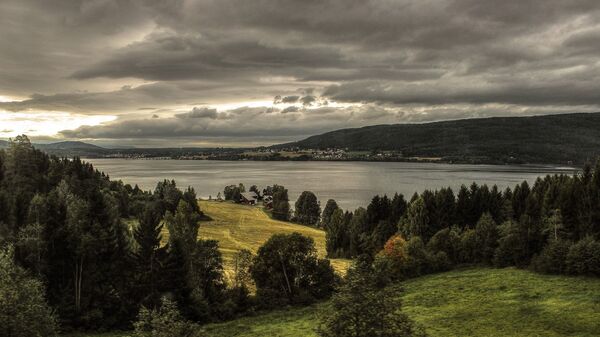Urbanization and depopulation of rural areas may have dramatic consequences for Norway's economy, Oskar Puschmann, landscape geographer at the Norwegian Institute of Bioeconomy, has argued, calling for drastic measures to stop the country from becoming a thick forest, national broadcaster NRK reported.
Over the past 25 years, Puschmann has documented vast areas of Norway becoming overgrown. Since the millennium alone, 25,000 farms have been closed down in the Scandinavian country, bringing the total number since 1960 to a whopping 160,000.
"All we see is green," Puschmann said, claiming the reforestation process to be accelerating.
Puschmann identified the coastal areas of the northernmost provinces of Troms and Finnmark, the Trøndelag coast, as well as the outer fjords and woodlands of southern Norway as "particularly vulnerable."
According to Puschmann, when a farm is abandoned today, only the closest and easiest-to-cultivate parts of the plot are being re-used in a process resembling "cherry-picking." Puschmann compared Norway's agriculture to an egg, where only the yolks, that is profitable and intensely cultivated lands are maintained, whereas the white has gradually disappeared since the 1960s.
"The changes play a major role. The great thing about Norwegian agriculture is that it is a symbiosis between food production and the preservation of natural qualities and cultural monuments. The diversity of nature lies in the "egg-white section." That's where we have the diversity of plants and wildlife, and it's about to disappear," Puschmann explained.
READ MORE: 'Little Piece of Freedom': Norway's Libertarian Utopia Spreads Its Wings
According to Puschmann, grazing cattle are the most logical and perhaps the only reasonable solution to stop the re-forestation. Puschmann also stressed that changes in Norway's agricultural policy are needed to preserve the cultural landscape.
Agriculture Minister Jon Georg Dale of the Progress Party agreed that grazing resources must be used to a greater extent. According to NRK, only a third of Norway's farmlands are used today.
Over 81 percent of Norway's population of 5.5 million is urban and is steadily growing. By contrast, the population of rural settlements shrank by 0.5 percent over the decade from 2006-2016, according to Statistics Norway. With an average population density of 13.2 people per square kilometer, Norway belongs to the least densely populated countries in the world.


